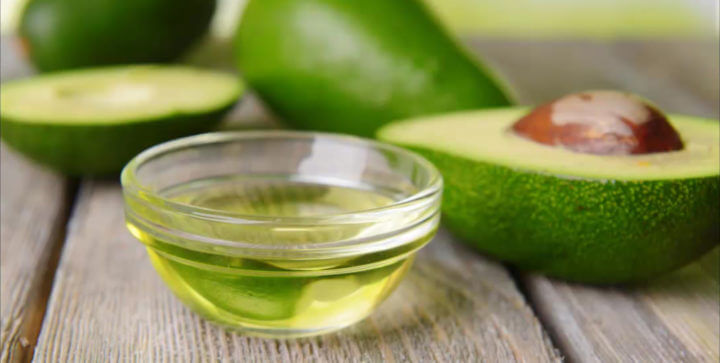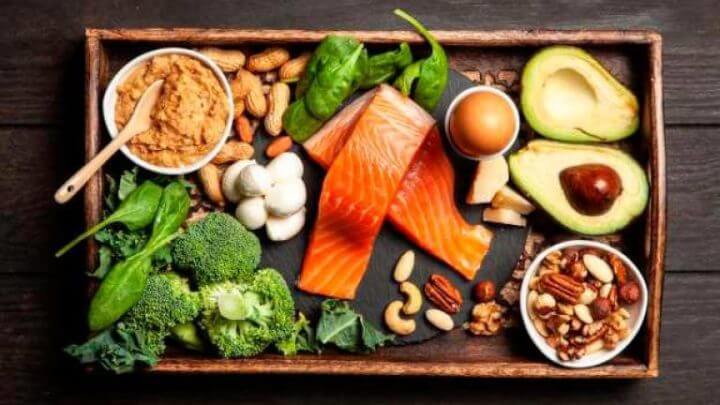Conversations around fats have always been of interest to our society: from those who deny their consumption entirely, to those who encourage you to stay away from them.
The truth is that in moderate portions, fats play an important role in our diet . First, because they have the power to influence our metabolism as much as other substances. In addition, they are related to the amount of inflammation and absorption of vitamins that our body can perform.
Sadly, fats have been destined for social condemnation for decades, when in fact we should be aware of them to realize their benefits. Therefore, we are going to demolish 5 myths about fats that you surely believed.

5 false myths about fat
1. All fats are the same
You can see for yourself that your knowledge of fats is poor. All types of dietary fat contain 9 calories per 1 gram, and each one affects us differently.
- Saturated fats: are those that you should consume in moderation. You can find them in a solid state, like coconut oil and the fat in animal meats.
- Trans fats: this type of fat is produced by man through different substances that allow a longer duration of processed products. In fact, trans fats have been banned in the United States as they are considered harmful for human consumption due to their potential to increase blood cholesterol.
- Monounsaturated fats : according to the American Heart Association . these types of fats are considered good for heart health. Generally, you can find them in their liquid form at room temperature in oils, such as olive, avocado, and almond.
- Polyunsaturated fats : they are the most confusing to understand and are categorized as “omega 3” or “omega 6”. While those derived from omega 6 are found in vegetable oils, those derived from omega 3 are in fish such as salmon and seeds such as chia.
Don’t go overboard with omega 6, as it can cause inflammation.

2. Saturated fats are bad
Many years ago it was thought that Saturated fats were the cause of heart disease, which led to the production of an infinity of “light” products, that is, without saturated fats. However, recent studies have done more research in this regard.
The American Journal of Clinical Nutrition made an exhaustive analysis in a group of more than 300,000 people, it was concluded that the bad influence of saturated fat in heart disease is a myth (Siri-Tarino, Sun and Krauss, 2010 ). On the other hand, a study published in Circulation states that replacing saturated fats with polyunsaturated ones can help you prevent heart disease (Sacks et al., 2017).

3. Vegetable oil is the healthiest
It is true that vegetable oils, canola and soy, are very good for your body because they have a large amount of monounsaturated fats. But the way they are produced; that is, its manufacture is not ideal.
Truth be told, this type of oil is refined, discolored and deodorized, which means that they are treated with solvents at high temperatures, as a result, the oil is separated from its beneficial nutrients.
Although this process is considered “safe”, our recommendation is to opt for other types of natural oils, such as the avocado mentioned above.

4. You must stop consuming fat to lose weight
Losing your weight does not mean giving up fat completely. Furthermore, a clinical study conducted by the Journal of American Medical Association in a group of 609 overweight adults found that there is no significant difference between the weight loss of people who followed a fat-free diet and those who restricted their carbohydrate intake ( Gardner et al., 2018)
The best option to lose weight is to find a diet that works for you especially, since each body needs different types of nutrients and each case is different. Remember the important thing, spending more calories is worth more than consuming fewer calories.
Another analysis by the Journal of the Acedemy of Nutrition and Dietetics has found that the incorporation of medium chain triglycerides (coconut oil) helps your body burn fat and helps reduce body weight (Mumme and Stonehouse, 2015)

5. All Fats Are Good On The Keto Diet
The Keto or ketogenic diet consists of 70% of our daily food coming from fat. In the first moment. reducing carbohydrate intake helps with weight loss, but then a high-fat diet is prone to inflammation and can contribute to blood clots, heart disease, and high blood pressure.
A good advice for you is to consume greater amounts of food with omega 3 acid, since the objective of having a functional Keto diet is to be based on foods rich in omega 3 and monounsaturated fats derived from beef, fish, nuts, seeds and avocados.

Conclution
Although it may not seem like it, humans have associated the name “fat” with something negative. Therefore, we must separate ourselves from our socially acquired judgments and inform ourselves better. In the end, we are the ones who take care of our body and who must take responsibility for it.
References
- Gardner, CD, Trepanowski, JF, Del Gobbo, LC, Hauser, ME, Rigdon, J., Ioannidis, JPA… King, AC (2018). Effect of Low-Fat vs Low-Carbohydrate Diet on 12-Month Weight Loss in Overweight Adults and the Association With Genotype Pattern or Insulin Secretion. Journal of American Medical Association. doi: 10.1001 / jama.2018.0245
- Mumme, K. and Stonehouse, W. (2015). Effects of medium-chain triglycerides on weight loss and body composition: a meta-analysis of randomized controlled trials. Journal of the Acedemy of Nutrition and Dietetics. doi: 10.1016 / j.jand.2014.10.022.
- Sacks, FM, Lichtenstein, AH, Wu, JHY, Appel, LJ, Creager, MA… Van Horn, LV (2017). Dietary Fats and Cardiovascular Disease: A Presidential Advisory From the American Heart Association. Circulation . doi: 10.1161 / CIR.0000000000000510.
- Siri-Tarino, PW, Sun, Q., Hu, FB and Krauss, RM (2010). Meta-analysis of prospective cohort studies evaluating the association of saturated fat with cardiovascular disease. American Journal of Clinical Nutrition . doi: 10.3945 / ajcn.2009.27725